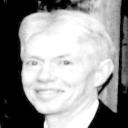Yahoo Answers is shutting down on May 4th, 2021 (Eastern Time) and beginning April 20th, 2021 (Eastern Time) the Yahoo Answers website will be in read-only mode. There will be no changes to other Yahoo properties or services, or your Yahoo account. You can find more information about the Yahoo Answers shutdown and how to download your data on this help page.
Trending News
Aristotle Theory of Forms question (10 pts best answer)?
how does Aristotle’s theory of forms lead to his view of man’s purpose or end. What IS man’s purpose, goal or end? What is man’s proper function?
4 Answers
- elenchuskbLv 610 years agoFavorite Answer
Plato, rather than Aristotle, has the "Theory of forms" or ideas --- "forma" being the exact Latin equivalent of the Greek term "IDEA". So depending upon whether or not translators of Plato into English are working from Greek texts or Latin translations of Plato [or they know Greek, Latin and English] there is an overlap between "forms" [from the Latin term, "forma", for idea] and "ideas" [straight from the Greek term IDEA].in English translations of both Plato and Aristotle. Plato and Aristotle both use the expression EIDOS as well, which is similar to IDEA and which is translated as SPECIES in English. In addition universals, concepts and essences are related to "ideas".
Aristotle's doctrine is different from Plato's in that he doesn't think that there is an independent WORLD/realm of pure IDEAS, or "FORMS" whereas Plato did and, according to Aristotle, Socrates did not. [Socrates did not separate the forms; but the Platonists did. Metaphysics; Bk XIII, Ch. 4; 1078b lines 30-33].
Aristotle, in contrast to Plato, has his own famous theory of the 4 causes of being which are (1) The material cause, (2) The FORMAL cause, (3) the efficient cause and (4) the final cause of being.
Aristotle's FORMAL CAUSES are very much like Plato's FORMS or IDEAS but they [such forms/ideas] are not located in a suprasensible "ultra real" world. There is a lot of debate about what Aristotle means by a "formal cause". But he clearly says in his treatise "On The Soul"/[Peri Psyches; in Greek] that:- Men do not have stones in their souls/psyches, but the FORMS of stones without the matter. More fully, quote:
ARISTOTLE:
Knowledge and sensation are divided to correspond with the realities, potential knowledge and sensation answering to potentialities, actual knowledge and sensation to actualities. Within the soul the FACULTIES of knowledge and sensation are potentially these objects, the one what is knowable, the other what is sensible. They must be either the things themselves or their FORMS. The former alternative [i.e. things themselves KB] is of course impossible: it is not the stone which is present in a soul but its FORM. It follows that the soul is analogous to the hand; for as the hand is a tool of tools [hands make and use tools KB] , so the mind/(psyche) is the FORM of FORMS and SENSE the FORM of sensible things. [On The Soul; Bk III, Ch. 8; 431b line 24 - 432a line 3].
There is no such thing as a "sensible form" in Plato's thought. So Aristotle clearly means something different from either his own ideal forms of the mind or Plato's ultra real "ideas/forms" (in a supra sensible realm) when he speaks about "sense being the FORM of sensible things" above. Formulable essence or definition is what he actually means by a "form".
So instead of a "Theory of Forms", Aristotle, by contrast had a Genos/Eidos doctrine --- or Genus/Species doctrine in English of "not separated" (except in thought) forms/ideas. We actually know what "sensible forms" are, today, due to modern physiology. They are the waves of localized depolarization transmitted along nerve endings which are triggered by specific sorts of stimuli peculiar to specialized sense receptors and directed to specialized areas of the human brain. Aristotle always thought that sense was a "ratio" because sense organs were destroyed by overstimulation, had lower level thresholds where they did not react and became dulled by low level constant stimulation --- which conFORMS well to modern physiological discoveries.
Aristotle's views of knowledge and intellection, peculiar to human beings (whereas sensation is common to both human and non-human animals) makes him think that man's ultimate happiness consists in living a life of knowledge rather than a life of mere sensation/perception like " brute" animals. Humanity's ultimate end is to be happy. It is best obtained, according to Aristotle, by leading an intellectual or a rational life. However, Aristotle was well aware that many people preferred the sensual life, given how difficult it was to lead an utterly or even primarily rational/logical life.
Kevin
Source(s): Aristotle's treatises; particularly Metaphysics; Peripsyches and Nicomachean Ethics - Anonymous6 years ago
This Site Might Help You.
RE:
Aristotle Theory of Forms question (10 pts best answer)?
how does Aristotle’s theory of forms lead to his view of man’s purpose or end. What IS man’s purpose, goal or end? What is man’s proper function?
Source(s): aristotle theory forms question 10 pts answer: https://biturl.im/FshC1 - 10 years ago
Wisely follow my answer. put aside points. Your /our body is delicious food to millions and millions of microbes whether live or dead. we are food to some thing and some thing is our food. Function is your external experiences via senses.





